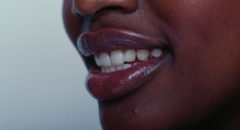 Because of pop culture, it’s easy to think of a full set of removable fake teeth sitting in a glass of water on a nightstand when anyone utters the word “dentures.” But those aren’t the only type of dentures available.
Because of pop culture, it’s easy to think of a full set of removable fake teeth sitting in a glass of water on a nightstand when anyone utters the word “dentures.” But those aren’t the only type of dentures available.
There are a variety of different styles to fit your specific needs – whether it be a full set, just the bottom row, a partial set or maybe just a few implants here and there.
It’s best to know all of your options before having the conversation about dentures with your dentist. Here is a list of styles and things to know, according to Colgate, about replacing your weak or missing teeth before your dentist appointment.
Full Dentures
This is necessary when your full set of teeth needs replacing. The dentist removes all teeth from your mouth and, overtime, your jawbone shifts to adjust to the missing teeth. In some cases, the dentist may measure your mouth for dentures before removing the teeth since the jawbone shifts without them. Other times, the dentist may do the measuring after the shift.
A flesh-colored acrylic base covers the gums and roof of the mouth, which allows for the top-row dentures to sit in your mouth. As for the bottom row, to account for space for your tongue, the acrylic base is shaped like a horseshoe.
Partial Dentures
This style is necessary to fill gaps from individual teeth that are missing or weak instead of your entire set of teeth. Partials can either be attached to the natural teeth with metal clasps, or to crowns on the natural teeth.
Implants
This style requires surgery to attach the implant to the jawbone. It also takes a few visits for the dentist to complete the task. However, implants are more stable than dentures because they are attached to the jawbone – thus, implants don’t slip like conventional dentures do. In order to get implants, though, you must have healthy gums and a strong jawbone. In some cases, the jawbone can be rebuilt but that’s up to the dentist’s discretion.
With either option, it’s important to take care of your false teeth. Regular cleaning of the dentures while also brushing the tongue, gums and palate, keeps your mouth clean and prevents future dental diseases. If you’re taking care of your mouth and dentures, they will last for many years without having to be replaced or completely redone – which means less money being spent in the future.




